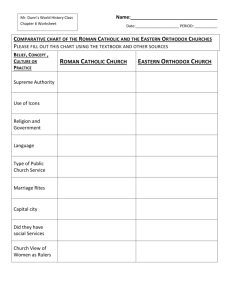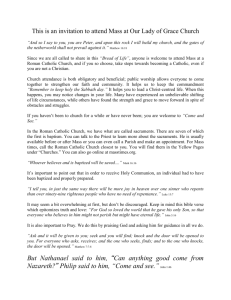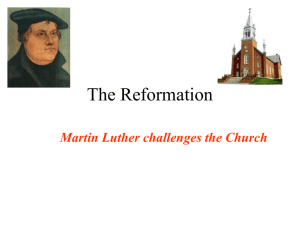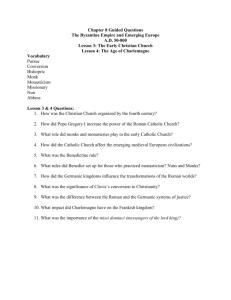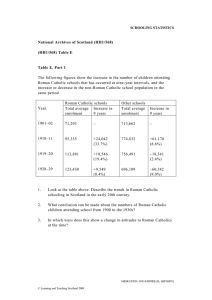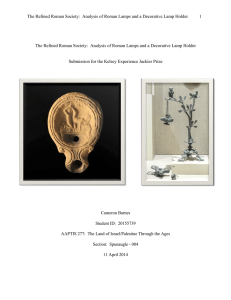True, But not Obvious Truth or Consequences By Ronald W. Shea
advertisement
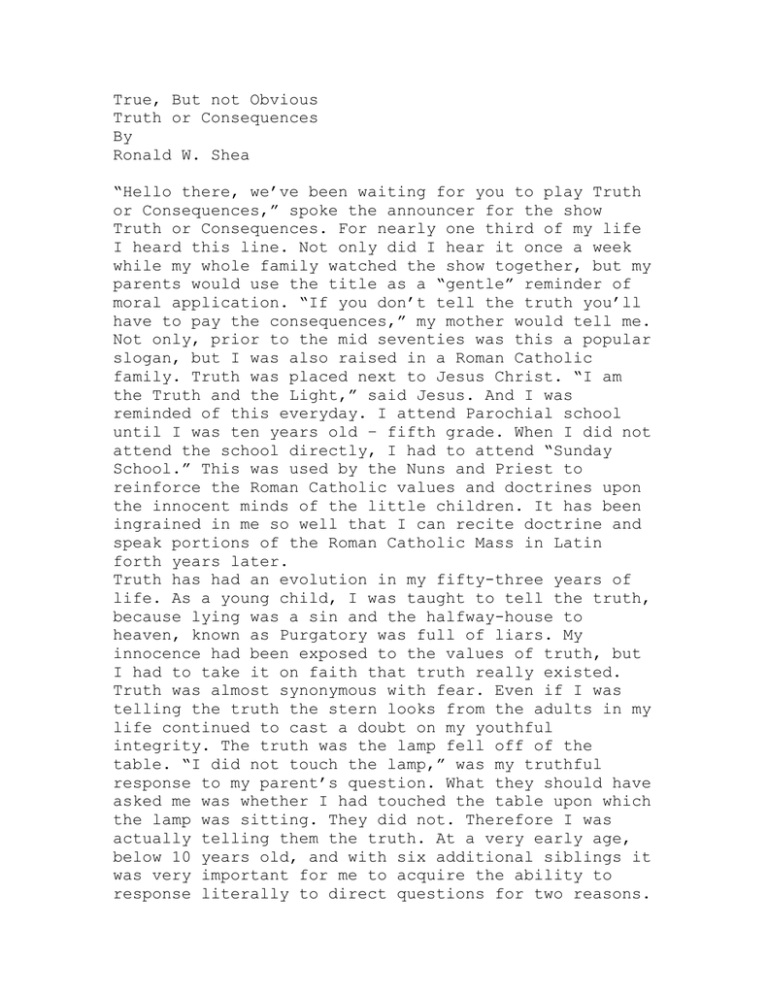
True, But not Obvious Truth or Consequences By Ronald W. Shea “Hello there, we’ve been waiting for you to play Truth or Consequences,” spoke the announcer for the show Truth or Consequences. For nearly one third of my life I heard this line. Not only did I hear it once a week while my whole family watched the show together, but my parents would use the title as a “gentle” reminder of moral application. “If you don’t tell the truth you’ll have to pay the consequences,” my mother would tell me. Not only, prior to the mid seventies was this a popular slogan, but I was also raised in a Roman Catholic family. Truth was placed next to Jesus Christ. “I am the Truth and the Light,” said Jesus. And I was reminded of this everyday. I attend Parochial school until I was ten years old – fifth grade. When I did not attend the school directly, I had to attend “Sunday School.” This was used by the Nuns and Priest to reinforce the Roman Catholic values and doctrines upon the innocent minds of the little children. It has been ingrained in me so well that I can recite doctrine and speak portions of the Roman Catholic Mass in Latin forth years later. Truth has had an evolution in my fifty-three years of life. As a young child, I was taught to tell the truth, because lying was a sin and the halfway-house to heaven, known as Purgatory was full of liars. My innocence had been exposed to the values of truth, but I had to take it on faith that truth really existed. Truth was almost synonymous with fear. Even if I was telling the truth the stern looks from the adults in my life continued to cast a doubt on my youthful integrity. The truth was the lamp fell off of the table. “I did not touch the lamp,” was my truthful response to my parent’s question. What they should have asked me was whether I had touched the table upon which the lamp was sitting. They did not. Therefore I was actually telling them the truth. At a very early age, below 10 years old, and with six additional siblings it was very important for me to acquire the ability to response literally to direct questions for two reasons. One, I did not want to take the blame for something my sisters or brothers actually did. Second, I did not want to get them into trouble and then have to suffer their wrath when mom and dad were away. The television show’s title was a reality for me as a young kid – Truth or Consequences. As a young adolescent, truth evolved into shades of color varying from white to shades of gray. When it came to family a white lie could be any where between appropriate to a necessity. When it came to responding to any of my four sister’s appearance questions, I was to my benefit to give them the appropriate answer. However, when it came to concealing the identity of my father’s gift for my mother, the white lie became a necessity. Truth itself was gaseous like steam. I knew what it was. I could see it, but it did not seem concrete. Once again, the show’s title had more meaning than just a television program. It was life – Truth or Consequences. As a young man, truth became discovery. I thought twelve years of education combined with two years of college would have prepared me for the real world. I was married at twenty-one and ready to achieve the “American Dream.” Truth became a primary factor or prediction. If what I was being told was true, then I could expect some certain outcome. The new-used car I bought for twenty-five dollars would not require any repairs, based on the condition the seller told me the car was in – not! The first house I bought would not require any maintenance as the previous home owner told me they had taken very good care of the home – not! And, my wife and I could work, establish ourselves and enjoy our togetherness, without children until we were thirty, because my wife was not ready to have children – not! It was then said by a common verse, “The only thing that is true in life is taxes and death.” I then postulated at this early age, everything else was caveat emptor. Truth was like water flowing through my fingers. I was something I could not always put my hand around. The predictability I had expected from societal interaction was to say the least, not reliable. Of course, Murphy would also raise his head and tack on not reliable at the most inopportune time – Truth or Major Consequences. The innocence I had as a young child had repeated itself, in a different form as a young adult. The commonality of the two ages was faith in people and trust in truth. The truth about trust being earned had its’ proof by experience. Throughout my thirties, forties and fifties, truth has solidified like ice. It was something I could find for myself. I could locate it, discover it, sense it and be blinded by it, but it was based on solidity. I could, by my own efforts increase predictability. The opportunities for me to experience unexpected results in my life are lessened now, because of what I know about truth. I have found the consequences as a result of being exposed to nontruthfulness are not as major as I can quickly change direction or actions to mitigate the damages and turn to a more positive tack. What I have learned about truth is it is personal. What I believe to be true may have some commonalty upon which others have agreed to also believe to be true, but not all things I believe to be true are shared with the same unanimity, with the biggest example being religion. What I have also learned about truth is that I do not know all of the things that can be true. Therefore, new information can bring to light in me a new truth. The new truth can be about something I already believed was true or something I was unaware of but as a result of exposure to it now know it as being true. The difficulty with those new truths is the true consequences which may have resulted from my ignorance of the truth prior to the application of action or which will result due to lack of applied action – Truth or Consequences.
